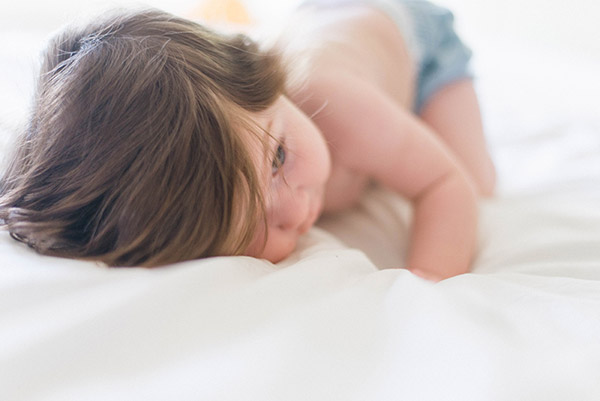

Causes Of Sleep Apnea in Children
Children face risk factors like excess weight and a family history of sleep apnea, similar to adults. Another factor that puts children at risk of developing this serious breathing condition is how the mouth and skeleton are developing. As childrens’ jaws and mouths are still developing, factors including enlarged tonsils or adenoids, jaw size, and tooth position can increase the likelihood a child with suffer from pediatric sleep apnea.
Likewise, certain medical conditions including Down Syndrome and Cerebral Palsy can increase a child’s risk of developing sleep apnea.
Sleep Apnea Symptoms To Look For
Just as sleep apnea is difficult to diagnose in adults, identifying sleep apnea in children is particularly difficult. Kids often have a hard time expressing what is wrong and in many instances, the symptoms are misdiagnosed as ADD or ADHD. Knowing the signs to look for can help ensure your child gets the care they need as soon as possible. Symptoms of pediatric sleep apnea include:
- Deep snoring with pauses and snorts
- Heavy breathing when sleeping
- Bedwetting
- Restless sleep and/or sleeping in unusual positions, often with the neck extended.
- Daytime sleepiness and difficulty focusing in school or behavioral problems
In school-age children with sleep apnea, the daytime fatigue can manifest itself as disruptive behavior in school, or trouble focusing. If your child’s teacher brings up these behaviors, it is certainly worthwhile to bring your child in for a screening.
What are my Child’s Sleep Apnea Treatment Options?
Getting the appropriate treatment early on is the best method of managing your child’s sleep apnea. In most instances, your child will be able to use a CPAP machine. However, long-term treatment should also involve looking at what’s causing the obstruction. If your child’s OSA is the result of a jaw that is too small, our Ann Arbor dentist might recommend early intervention braces to realign the teeth and jaw. Diet changes and exercise may also be recommended to help treat underlying causes of sleep apnea.
Outgrowing Sleep Apnea
For most children who have the condition due to poor bite, jaw size, or tonsil size, treatments like tonsil removal and braces may correct their symptoms.
When it comes treating sleep apnea, early intervention and treatment can help prevent problems with growth and ensure healthy development. Dr. Regina M. Dailey works closely with parents and offsite sleep specialists to ensure children with sleep apnea get the best care possible. Contact us today to schedule your child’s consultation!